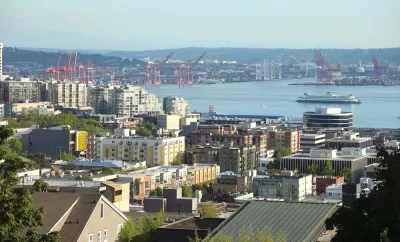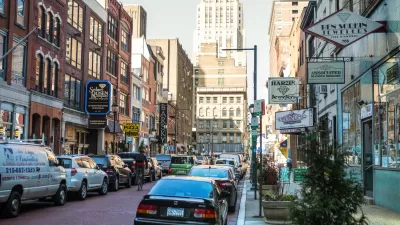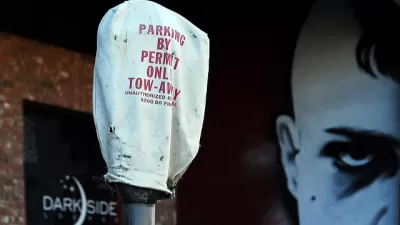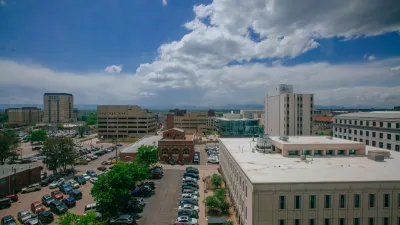A mixed-use project in Seattle's Phinney Ridge neighborhood has become a flashpoint in the ongoing debate over parking. Activists are fighting rules that let developers omit parking in areas with a certain level of transit service.

As Seattle's housing boom continues, parking is often optional. Jessica Lee writes, "In downtown and select areas near public transit stops across Seattle, nearly one-third of new apartments do not provide space for cars under years-old parking-optional regulations that aim to drive down construction costs so developers can build more housing."
A proposal to nix parking at a four-story mixed-use project called Phinney Flats has ignited debate between developers, the city, and activists who say "the lack of off-street parking will force vehicles onto already congested streets. Renters are not giving up cars at the rate city officials would like to believe, they say."
On one hand, an increasing number of Seattleites are doing without cars. "According to the city, about 40 to 48 percent of renter households in the city's neighborhoods with the most multifamily housing already get around without owning cars, and city planners expect that number to grow."
But neighborhood activists "say the parking regulations are unrealistic and misguided. They also argue that a lack of on-site parking disproportionately affects people who must rely on cars to get around, such as parents with young children."
The city has responded with a set of proposed rule changes that have done little to allay many activists' worries. "Seattle Mayor Tim Burgess has reviewed the proposed parking changes, including the definition of frequent transit service, and sent them to the City Council, the mayor’s office said Wednesday. Officials expect the land-use and zoning committee to review the proposal next month."
FULL STORY: Residents fight Seattle rules allowing apartment developers to forgo parking

Study: Maui’s Plan to Convert Vacation Rentals to Long-Term Housing Could Cause Nearly $1 Billion Economic Loss
The plan would reduce visitor accommodation by 25,% resulting in 1,900 jobs lost.

North Texas Transit Leaders Tout Benefits of TOD for Growing Region
At a summit focused on transit-oriented development, policymakers discussed how North Texas’ expanded light rail system can serve as a tool for economic growth.

Why Should We Subsidize Public Transportation?
Many public transit agencies face financial stress due to rising costs, declining fare revenue, and declining subsidies. Transit advocates must provide a strong business case for increasing public transit funding.

How Community Science Connects People, Parks, and Biodiversity
Community science engages people of all backgrounds in documenting local biodiversity, strengthening connections to nature, and contributing to global efforts like the City Nature Challenge to build a more inclusive and resilient future.

Alabama: Trump Terminates Settlements for Black Communities Harmed By Raw Sewage
Trump deemed the landmark civil rights agreement “illegal DEI and environmental justice policy.”

Dear Tesla Driver: “It’s not You, It’s Him.”
Amidst a booming bumper sticker industry, one writer offers solace to those asking, “Does this car make me look fascist?”
Urban Design for Planners 1: Software Tools
This six-course series explores essential urban design concepts using open source software and equips planners with the tools they need to participate fully in the urban design process.
Planning for Universal Design
Learn the tools for implementing Universal Design in planning regulations.
City of Santa Clarita
Ascent Environmental
Institute for Housing and Urban Development Studies (IHS)
City of Grandview
Harvard GSD Executive Education
Toledo-Lucas County Plan Commissions
Salt Lake City
NYU Wagner Graduate School of Public Service





























